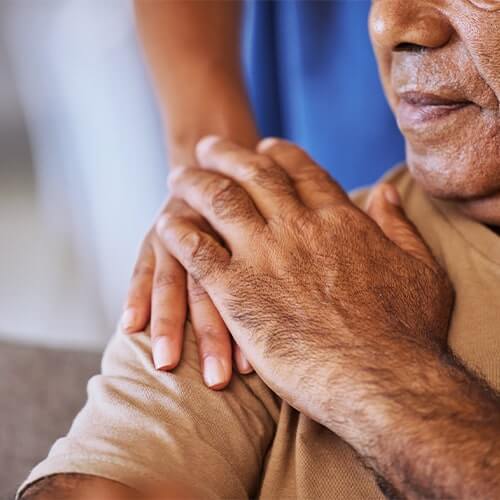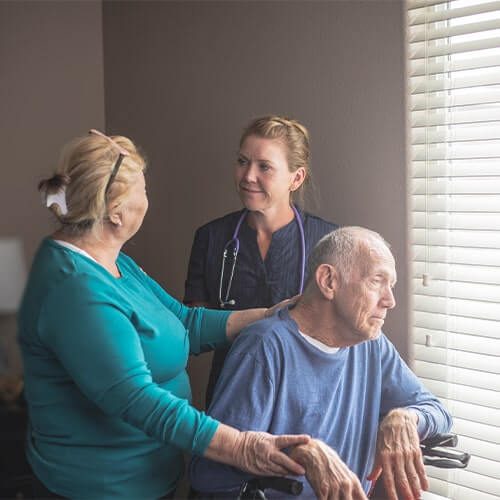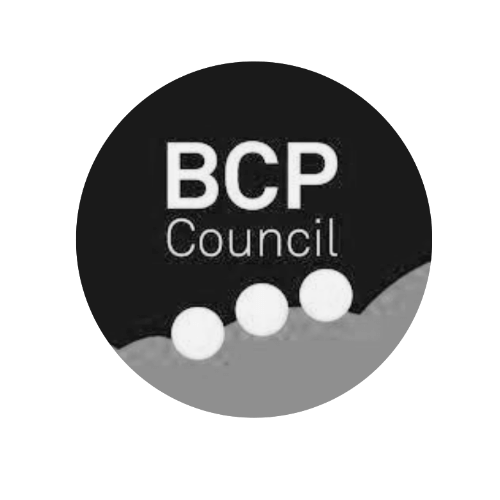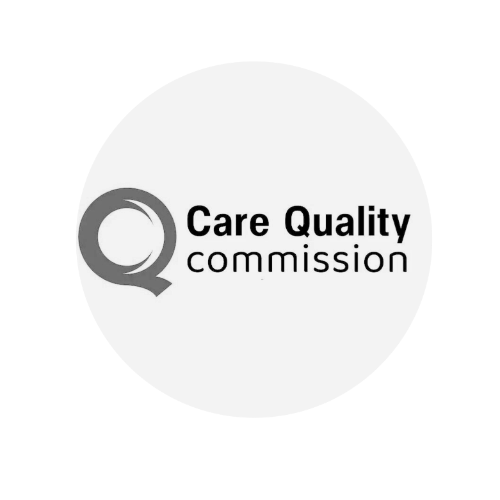What Is The Difference Between Palliative And End-Of-Life Care?

When your loved one is facing a serious illness, understanding the care options can feel overwhelming. Two terms you will hear frequently are palliative care and end-of-life care. These are often used interchangeably, but there is a difference that distinguishes them. When choosing care, it is important to understand this difference so you select the right type of care for your loved one. So, what is the difference between palliative care and end-of-life care?
The difference lies in the longevity and type of care given. Palliative care focuses on improving the quality of life for those with a serious illness, while end-of-life care focuses on keeping your loved one comfortable in the final stages of their life.
Neither one is a care type that you want to be researching for your loved one. However, when the time comes, it will be vital that you and your loved one receive the correct care and support for their needs.
At LuxuryCare, we offer palliative care to those receiving nursing or residential care with us or are joining us for this type of care. In this blog, we explain the differences so that when you are faced with conversations around them, you are able to understand and make decisions based on information.
What is Palliative Care?
As we mentioned above, palliative care centres around improving the quality of life for your loved one with a serious illness.
It aims to alleviate symptoms of the illness, such as pain, allowing your loved one to continue doing what they love for as long as possible. It differs from nursing care because it doesn’t focus on curing the issues.
This being said, it is often provided alongside curative care, where possible, working with medication that targets the issue to reduce signs and symptoms.
Palliative care can be provided at any stage of illness, meaning it could be given the duration of an illness through curing or added to the care plan as a condition progresses.
Examples of palliative care include:
- Pain management
- Emotional support
- Coordination of care
What is End-of-Life Care?
End-of-life care is a subset of palliative care because it also focuses on keeping your loved one’s symptoms at bay.
However, it is specifically provided in the final stages of their life. Typically, someone might receive end-of-life care if they have a life expectancy of six months or less.
The aim of end-of-life care is to provide comfort, dignity and support to both your loved one and your family.


Key Differences Between Palliative Care and End-of-Life Care
When researching care types, the difference between palliative and end-of-life care can feel rather minute.
To make it slightly easier to comprehend the distinction between them, here are the key differences:
- Timing – palliative care can be given at any time, but end-of-life care is provided specifically in the final months or weeks.
- Purpose – palliative care often supports curative efforts, while end-of-life care focuses on comfort and dignity.
- Services – end-of-life care encompasses bereavement support for the family, going beyond physical or medical care of your loved one. This might not always be offered with palliative care.
Who Provides Each Type of Care?
Both palliative care and end-of-life care are provided by a team of people.
If your loved one is in a care home, such as ours, they will receive day-to-day care from carers and nurses. The care given will be laid out in a bespoke care plan, which will detail the level of needs and personal preferences so that your loved one gets the care they require in a way they like.
Alongside the daily care at the home, they will also receive care from their doctors and medical professionals. Palliative care might include various therapies, such as physiotherapy, occupational therapy or even speech and language therapy.
Mental health professionals can be part of palliative or end-of-life care as they will work with your loved one, and quite often you and your family, to provide mental health support where needed.
Finally, for those who are religious and wish for it, a chaplain may be involved to offer spiritual and religious guidance throughout the care given.
Why Understanding the Difference Matters
It is important that you understand the difference between the two types of care to make sure your loved one receives the right level of care with the right aim.
If they are receiving treatment for a condition or have a longer life expectancy of six months, the aim of care should be to keep them as independent as possible by reducing symptoms. Therefore, you should be looking at palliative care.
However, if your loved one has stopped receiving curative treatment and is given less than six months to live, they are likely to need end-of-life care, which focuses on keeping them comfortable and pain-free.
Communication is always important when it comes to caring for a loved one, and this is a value held by all medical professionals. While you are figuring out your loved one’s care needs, don’t be afraid to lean on those already providing care for help and understanding.
Doctors and nurses should be able to direct you to the right type of care needed, recommending local homes or care facilities that meet those needs.
On top of that, staff at any care homes you visit should be able to emphasise how they can help your loved one and what type of care they might recommend – usually, this will follow the same lines as those given by your loved one’s doctors.


Palliative Care and End-Of-Life Care at LuxuryCare Homes
We have a group of care homes across Bournemouth and Poole that are able to provide palliative care for your loved one.
Our staff are highly trained to distinguish the difference between the care types in their everyday practices while making sure your loved one receives the best possible care.
To achieve this, during the admission process, we create a bespoke care plan that will include details of medical and physical care, as well as personal preferences. When writing the care plan, we will get to know your loved one’s life story, which we can weave into our care to create an experience that is familiar and comforting to them.
We work with doctors, including our in-house GP, nurses and specialists, to provide medical care while also providing access to psychologists to help your loved one through the strains and frustrations of this type of care.
Finally, we have a multi-denominational chaplain who is available to offer spiritual guidance to individuals and their loved ones.
Our care extends beyond the physical, mental and spiritual support we provide, as we pride ourselves on creating homes that are full of socialising, community and friendship. Through daily activities, trips out, luxury facilities such as our gardens, and home-cooked meals prepared by our chef, we recreate your loved one’s homes and help them build an exciting and engaging life within our care.
If you are interested in palliative care at one of our care homes, we recommend booking a visit, where we can show you our facilities, and you can experience life at our care home, joining in with the activities or meal time. It also provides a chance for you to learn more about our care from our staff and potentially speak to our residents.
Chat with us about your loved one’s needs and book a visit by calling us on 01202 037373 or completing our online contact form, and we will get in touch with you.














